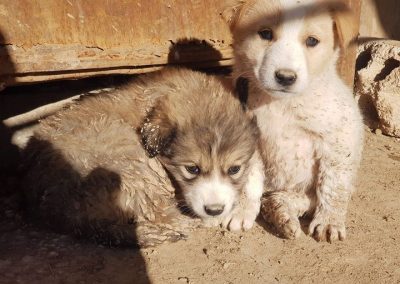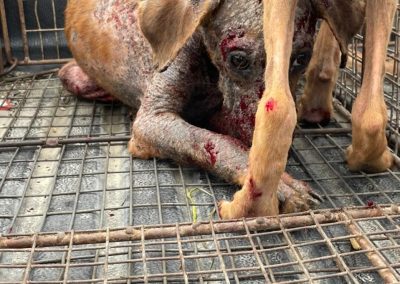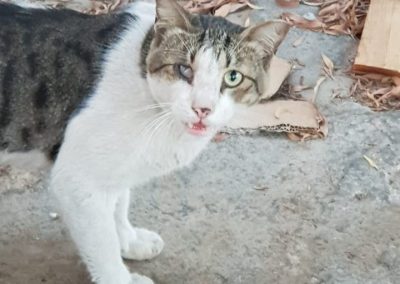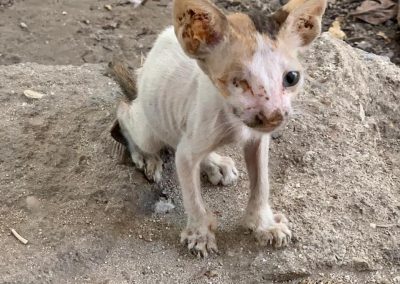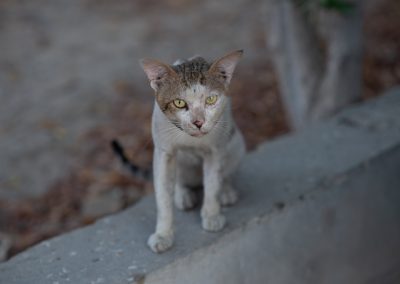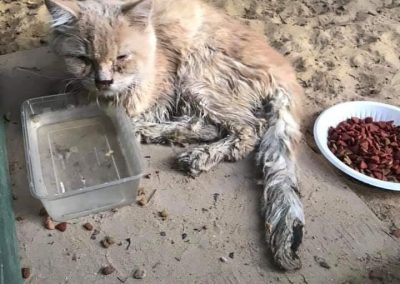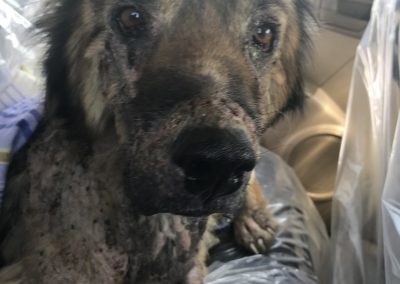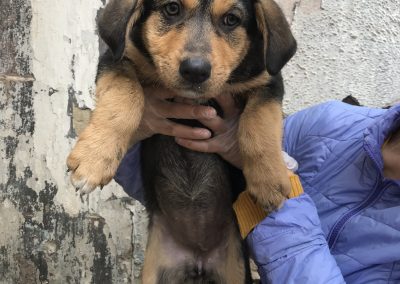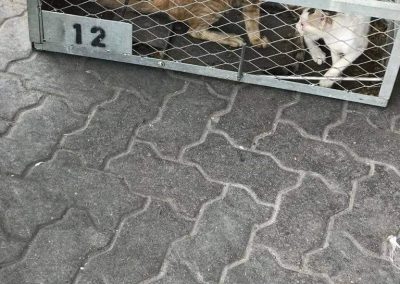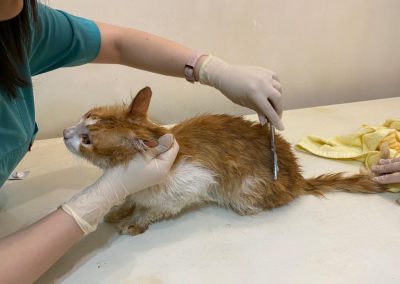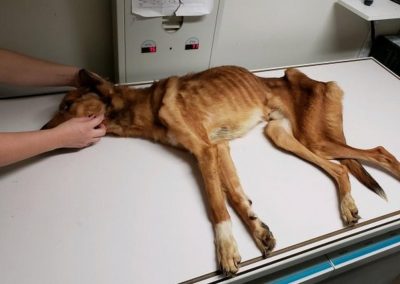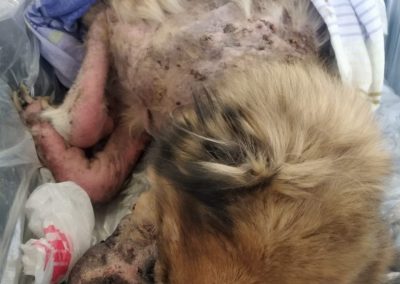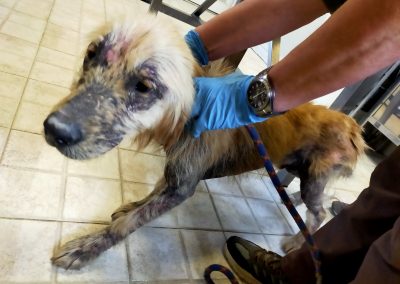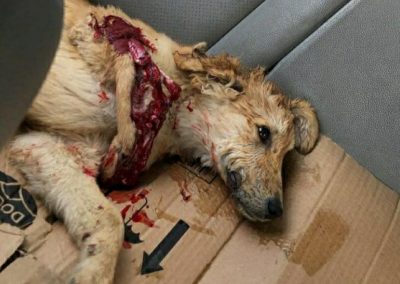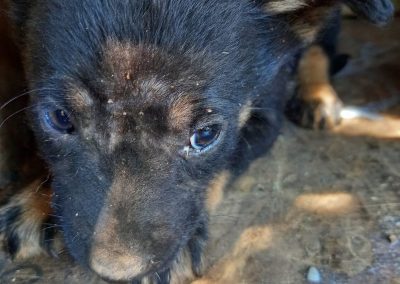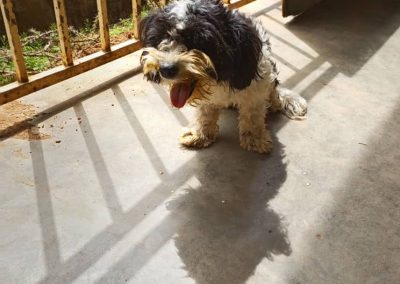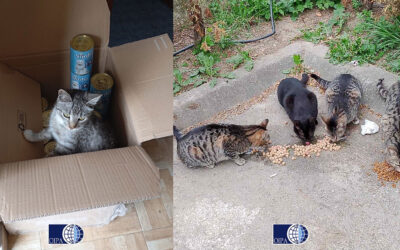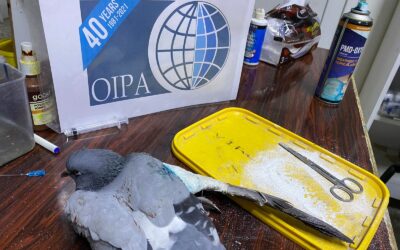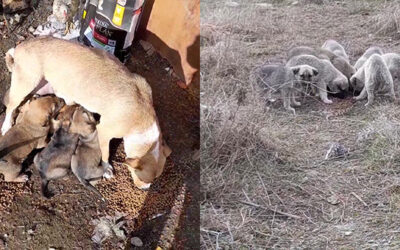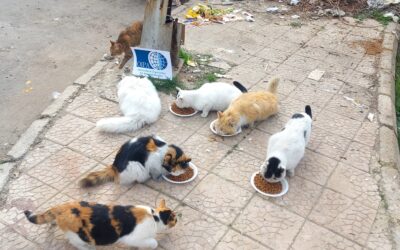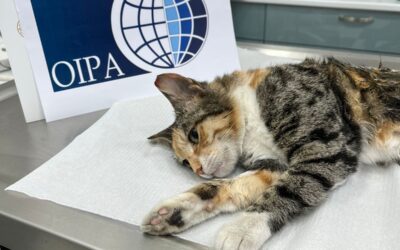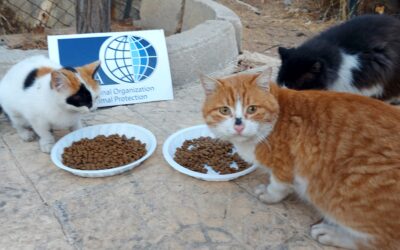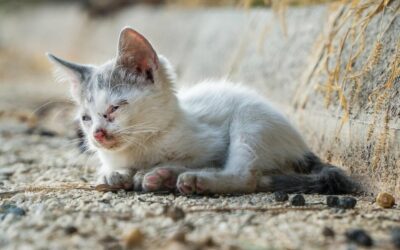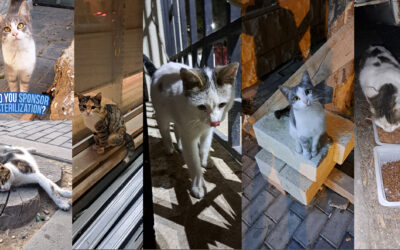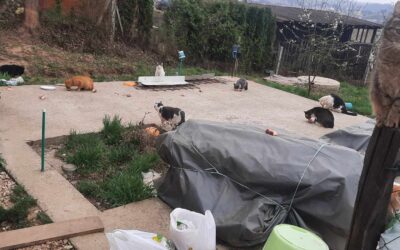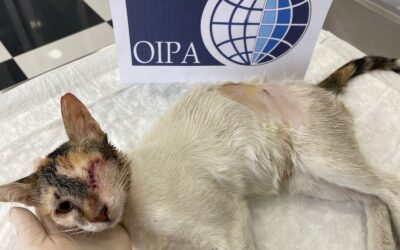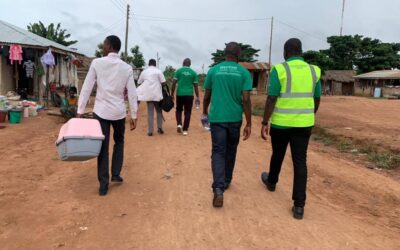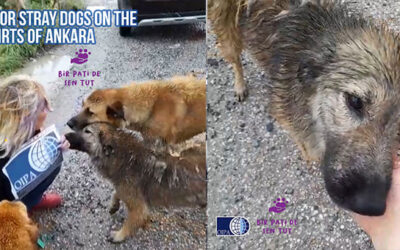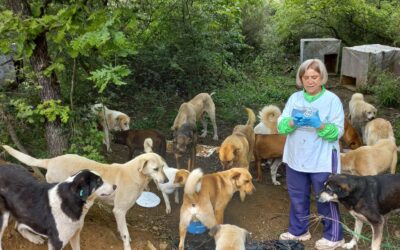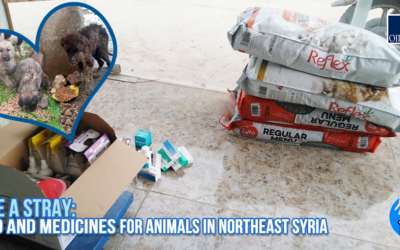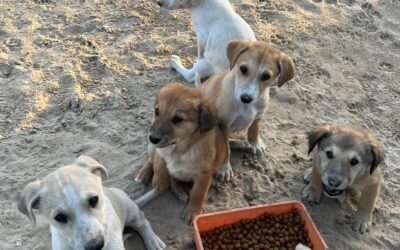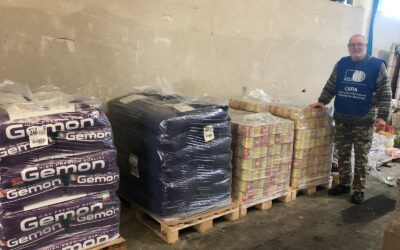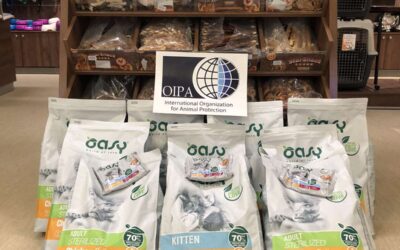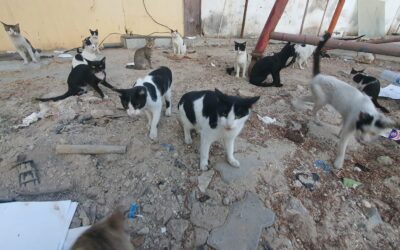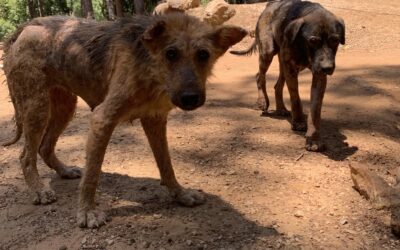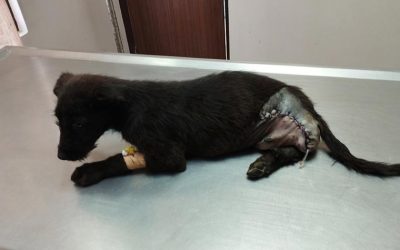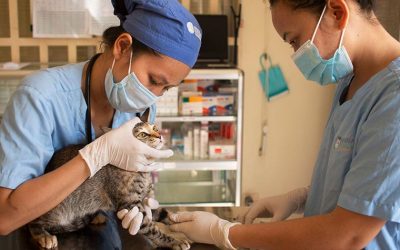STRAY ANIMALS ARE NEGLECTED AND ABUSED IN MANY COUNTRIES OF THE WORLD. SUPPORT OUR PROJECT AND HELP US “SAVE A STRAY”
Stray animals are neglected and abused in many countries around the world. Did you know that?
Often, we remain unaware of the conditions faced by animals in other nations and how strays are treated in specific places. However, when we uncover the truth, it becomes evident that the list of countries where animal welfare falls below even the minimum standard is alarmingly long, and unfortunately, it is getting worse every day.
National animal protection laws and regulations are frequently inadequate, and in many cases, basic animal rights do not exist in these countries. Additionally, there is a significant lack of educational and awareness campaigns aimed at local communities. Such initiatives are essential to combat the widespread feelings of mistrust, fear, indifference, and hostility towards stray animals.
The absence of laws, regulations, and education forces street dogs and cats to endure daily struggles for survival against abuse and mistreatment.
Strays are often not recognized as sentient beings capable of feeling emotions such as joy and happiness, as well as fear, pain, and sadness. Instead, they are viewed merely as “a nuisance to public health and safety,” leading to inhumane, cruel, and barbaric methods of control.
Local governments frequently refuse to allocate resources for the ethical management and control of stray animal populations. Rather than implementing effective long-term programs for mass sterilization and vaccination, they waste money on brutal practices that result only in the suffering and death of thousands of stray animals. This attitude toward strays reflects a societal norm that emboldens citizens to abuse innocent beings, teaching their children that violence and brutality are justified and socially acceptable.
Those strays who manage to evade mass culling and killing campaigns are still forced to live in deplorable conditions. Undernourished, sick, injured, and suffering from serious disabilities and diseases, they spend their short lives aware that cruelty is always lurking just around the corner.
These are just a few examples; stray animals are often rejected by local institutions and discarded by citizens in many other countries as well.
Unfortunately, the problem of stray animals is still neglected by the institutions of many countries, which in most cases, do little or nothing to prevent it, while in the worst cases, employ cruel methods, like mass shooting or poisoning, to “solve” the problem.
Any civilized country should be ashamed of itself when an animal dies, is abused, becomes ill or is injured due to lack of assistance and protection, but shame is a feeling that apparently only few are able to experience.
Stray dogs – but also cats – often rely only on volunteers to survive. Volunteers who feed and look after them daily and provide them constant care and assistance.
What can we citizens do to help strays? Call on governments and institutions to pass or implement laws for the protection of animals, promote tourism in locations that behave ethically towards stray dogs, help associations and volunteers.
The project "Save a stray"
In the view of these extremely painful realities and considering the so many calls for help that OIPA International receives daily from its delegations and member league associations, the organization has decided to launch a project to give voice and offer a tangible help to stray dogs and cats who have no choice, and invisible continue to suffer every day around the world.
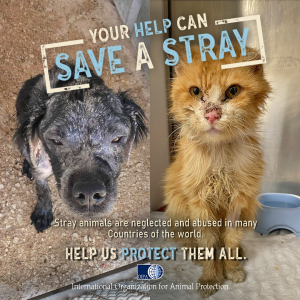
Supporting our project “SAVE A STRAY”, you will help us with:
🥫 FOOD wet, dry and specific food for animals;
🩹 VET CARE AND TREATMENT provide veterinary care and assistance to strays in need – including spaying and neutering, core/rabies vaccinations, medicines and medications, parasite treatments, internal/external/complex surgeries, diagnosis and examinations, therapies and recovery, blood/other tests;
🏡 FOSTER AND ADOPTION pay relocation, foster and rehome of stray animals suitable for adoption – offering them a chance of a better life;
📘 EDUCATIONAL PROGRAMMES prepare educational programmes and informative material addressed to communities, schools and municipalities regarding the topic of responsible pet ownership, and the correct approach and management of local stray animals;
(Some examples of costs for a single dog or cat: 10 – 20 euros for tests or vaccinations; 20 – 30 euros for monthly food; 50 – 100 euros for desex and microchip; 100 – 200 euros for surgeries; etc..) – whatever amount, even a few euros, can change the life of a stray
MAKE A DONATION HELP US “SAVE A STRAY”
PAYPAL OR CREDIT CARD
BANK TRANSFER
Write as note “Save a stray” and add the exact amount
Account Holder:
OIPA – Organizzazione Internazionale Protezione Animali
Bank details:
IBAN: IT93I0306909620100000002326
SWIFT/BIT Code: BCITITMM
Bank’s Name and Address:
Banca Popolare Commercio e Industria
Agency MILAN-BOCCHETTO
VIA BOCCHETTO, 13 – 20123 Milan – Italy
what we have done together
FOOD BRINGS RELIEF TO DOGS IN LEBANON
Food brings relief to dogs in Lebanon Food brings relief to dogs in Lebanon. OIPA recently delivered a vital 600kg of dry food to dogs in need in Lebanon. 30...
A PAWSOME ACT OF KINDNESS FOR CATS IN BOSNIA
A Pawsome act of kindness for cats. A Pawsome act of kindness for cats. After receiving an email written by a lady, who was in a difficult situation and with...
FOOD DONATION FOR CATS IN TUZLA
Food donation for cats in Tuzla Food donation for cats in Tuzla. In response to a heartfelt request from our member association, Wag Wag, in Bosnia and...
OIPA CELEBRATE THE INTERNATIONAL CAT DAY WITH STARVING STRAYS IN DUBAI
OIPA celebrates International Cat Day with starving strays in Dubai Today, August 8th, is International Cat Day! This special day was established in 2002 by...
OIPA SPONSORS A CAT VACCINATION CAMPAIGN AT TISHK UNIVERSITY IN KURDISTAN
OIPA sponsors a cat vaccination campaign at Tishk university OIPA sponsors a cat vaccination campaign at Tishk university. Our member association KOARP...
DONATION OF FOOD TO STRAY CATS IN BANJA LUKA
OIPA International donated 100 kg of dry and wet food to Rajka, a volunteer who works tirelessly to give shelter and take care of stray cats in Banja Luka,...
FIRST DONATION FOR HOMELESS ANIMALS IN KURDISTAN
Thanks to our supporters who participated to the fundraising campaign in aid of stray animals in the region of Kurdistan – Iraq, we sent a first donation of...
FOOD FOR 60 ANIMALS DELIVERED TO A VOLUNTEER IN BOSNIA HERZEGOVINA
A volunteer in Banja Luka, Bosnia and Herzegovina, messaged us asking for help for feeding the 60 animals she looks after all alone. Without financial...
18 PUPPIES AND TWO MOTHERS NEED HELP FOR VACCINATIONS
Volunteers of Bir Pati de Sen Tut in Turkey, OIPA’s member league association, recently had to deal with an emergency rescue activity. In one of their usual...
STRAY FEEDING ACTIVITY IN DAMASCUS AND ALEPPO
Political, bureaucratic and logistical issues make the entrance and delivery of humanitarian aid often a mission impossible in a country plagued by years of...
MISSION ACCOMPLISHED: SEVEN OUTSIDERS STRAY CATS FINALLY INCLUDED IN OIPA AZERBAIJAN’S AUTUMN STERILIZATION CAMPAIGN
Less than a month ago, we asked for your support to help our local representative OIPA in Baku include in the autumn sterilization campaign six stray cats...
AFTER THE DESPERATE REQUEST OF A VOLUNTEER, OIPA DELIVERS A GIFT TO CATS IN DUBAI
After our recent appeal, we have been able to purchase over 100 kg of dry and wet food for the stray cats our friend Fawaz takes care for in Dubai. The amount...
A DESPERATE REQUEST FROM DUBAI: OVER 400 HOMELESS CATS NEED FOOD
So many times, OIPA has reported the cruelty endured by stray animals in Dubai and the rest of the Emirates, last the mass dumping of cats in Abu Dhabi....
SIX CATS LEFT OUT FROM THE AUTUMN STERILIZATION CAMPAIGN IN BAKU, AZERBAIJAN. SPREAD THE VOICE TO HELP THEM
Today we won’t bother you writing too much. These beauties are just six of the many homeless cats living in Baku, Azerbaijan, which need to be sterilized. Our...
SOS FOOD FOR STRAY CATS IN BOSNIA. HELP OIPA GUARANTEE THEM A DAILY MEAL
OIPA delegation in Bosnia and Herzegovina in cooperation with the member league association Wag Wag in Banja Luka are collecting donations to buy food for...
DO YOU REMEMBER THE 5 PUPPIES ABANDONED IN A BOX AND RESCUED BY OUR VOLUNTEER IN MONTENEGRO?
Do you remember the 5 puppies abandoned in a box and rescued by our volunteer in Montenegro? Thanks to your donations Daisy, Luna, Ruby, Jasper and Milo...
SEVEN FEMALE STRAY CATS STERILIZED IN AZERBAIJAN
Last June, we asked for your help to sterilize 6 cats abandoned nearby one of the cat colonies looked after by our volunteer in Baku, Azerbaijan....
ABBIE AND ANGIE SAVED FROM THE DOG MEAT TRADE IN GHANA. HELP THEM HAVE A BRIGHTER FUTURE FAR FROM CRUELTY
Few months ago, during an investigation on the Dog and Cat Meat Trade in Ghana, the team of Coalition for Cruelty free Africa discovered a litter of puppies...
FOOD FOR STRAY DOGS ON THE OUTSKIRTS OF ANKARA SPONSORED BY OIPA
https://youtu.be/MgOL0UDxAyE Last month our member league association – Bir Pati De Sen Tut in Turkey contacted us asking for help for Isik, an individual...
STRAY DOGS IN PENDIK RECEIVED DRY FOOD, BUT THERE IS STILL SO MUCH TO DO TO HELP ANIMALS LOOKED AFTER BY OIPA VOLUNTEERS IN TURKEY
https://youtu.be/0I-rAfvpKkc Volunteers of OIPA Pendik, a district of Istanbul (Turkey) feed more than 200 stray dogs in 8 different areas struggling daily...
DELIVERY OF PET FOOD AND MEDICAL PRODUCTS FOR STRAY ANIMALS IN NORTHEAST OF SYRIA
After a long time, OIPA International was able to support an extraordinary animal activist who lives in Northeast Syria and fights daily for stray and...
SAVE A STRAY: PET FOOD REACHED HOMELESS ANIMALS IN ABU DHABI
This month, OIPA International has supported stray animals in Abu Dhabi sponsoring over 200 kg of pet food for 250 cats and 50 dogs fed and cared for by...
FOOD DELIVERY FOR ANIMALS LOOKED AFTER BY VOLUNTEERS OF OIPA CORSICA
1,7 tons of dry and canned food for cats and dogs has been recently delivered to our delegation in Corsica. Cat food will be stocked and distributed to...
FOOD DELIVERED FOR CATS FOSTERED BY VOLUNTEERS OF WAGWAG IN BOSNIA
OIPA has recently donated 80 kg of dry and canned food for the cats under the good care of WagWag, our member league association based in Bosnia and...
STRAY CATS OF DUBAI RECEIVE AN EARLY CHRISTMAS PRESENT: FOOD DELIVERED AND DISTRIBUTED WITH OUR PROJECT “SAVE A STRAY”
https://youtu.be/94QmFBqTM3c There are no holidays for cats in Dubai as there are no moments of relax for all the other strays across the world. Street...
69 SICK DOGS DUMPED IN FRONT OF A SMALL SHELTER IN LEBANON. OIPA LENDS A HAND TO “GIVE ME A PAW”
Last July, volunteers of the small shelter “Give Me a Paw” in Lebanon witnessed a horrific tragedy. Sixty-nine sick dogs, many on the verge of death for...
THE FIRST EDUCATIONAL PROGRAMME ON ANIMAL WELFARE IN TULCEA HEADED BY SAVA’S SAFE HAVEN AND SPONSORED BY OIPA INTERNATIONAL
On World Animal Day that is celebrated every year the 4th of October , our member league Sava’s Safe Haven has launched the first animal welfare programme for...
13 DOGS HEALED FROM DISTEMPER THANKS TO THE PROMPT INTERVENTION OF OIPA CAMEROON AND OUR PROJECT “SAVE A STRAY”
Since the creation of OIPA Cameroon’s mobile veterinary clinic in 2018, many stray and owned animals have benefited from this initiative . The...
TWO PUPPIES CRITICALLY INJURED GOT TREATED THANKS TO VOICE OF ANIMAL NEPAL AND OIPA
OIPA recently supported its member league association Voice of Animal Nepal offering a donation that was used for the medical treatment of two puppies...
TEN STRAY CATS HELPED THANKS TO ANIMAL RESCUE CAMBODIA AND OIPA
Cambodia is home to around 5 million dogs and an unknown number of cats likely in the millions and higher than the number of dogs. This means, millions of...

